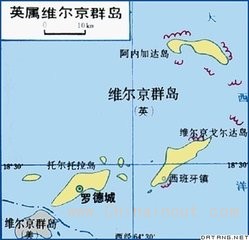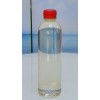维京群岛遭遇“反洗钱”压力

被称作“避税天堂”的加勒比海英属维京群岛(British Virgin Islands,简称BVI)正面临来自香港的反洗钱运动压力。长期以来,维京群岛一直对试图创办离岸公司的中国企业有着很大吸引力。
那些参与过BVI公司注册业务的律师表示,过去两年,BVI的公司很难在香港的汇丰银行(HSBC)和渣打银行(Standard Chartered)创建银行账户。这两家国际银行在香港都占有极大市场份额。
BVI负责亚洲事务的驻港办事处主任埃利塞•多诺万(Elise Donovan)表示:“一方面合规要求越来越高,另一方面银行自身的风险厌恶倾向也越来越强。因此,创建银行账户变得越来越难。”
为打击避税和对恐怖活动的资金支持,欧美正在加大反洗钱力度。此举迫使银行加强合规方面的要求。本周末,二十国集团(G20)的财长将在凯恩斯会晤,预计他们将会讨论应对避税问题的改革措施。
自2012年被罚款以来,汇丰银行变得愈发小心。该行当年曾因经手贩毒资金和允许资金流过受制裁国家,被处以19亿美元罚款。渣打银行则在上个月与美国监管机构达成协议,同意暂停为香港高风险客户的结算服务。
康德明律师事务所(Conyers Dill & Pearman)合伙人克里斯托弗•比克利(Christopher Bickley)表示,开设BVI账户正因银行业的举措而变得“痛苦不堪”,这促使企业转而在萨摩亚群岛和塞舌尔群岛开办公司。耿西金融岛(Guernsey Finance)首席执行官费奥纳•勒普瓦德万(Fiona Le Poidevin)表示,汇丰银行拒绝创建BVI账户“能说明很多问题”。
过去三十多年来,BVI一直吸引着许多设立在香港的中国企业。在英国准备于1997年将香港归还中国之际,许多企业急于在BVI设立离岸公司,以保护它们的资产。BVI政府的收入中,60%来自金融服务,其中近一半的收入来自以中国企业为主导的亚洲公司。
在2007年全球金融危机以前,BVI的公司数目达到约75万家,而该群岛居民只有2.3万人,平均每人34家公司。而在2007年,这一数字大幅减少至40.4万家,此后又在2011年回升到危机后的顶点。不过,自那以来,在BVI开办公司的数目每年都在下降。
迈克尔•加吉耶(Michael Gagie)是迈普达律师事务所(Maples and Calder)合伙人,熟知BVI和开曼群岛法律。他说,香港银行业监管机构香港金融管理局(Hong Kong Monetary Authority)出台的新准则导致合规标准进一步提高,这在香港曾引发“小范围震荡”。
汇丰和渣打拒绝置评BVI问题。汇丰银行只是表示,该行“正在采取最高或最为有效的金融犯罪监控手段,并在所有我们运营业务的地方都采用了这些手段”。而渣打银行则表示“我们确实在继续从更普遍意义上加强监控”。
香港金管局新的反洗钱规定是2012年设立的。不过该机构表示,“并未要求银行不要为在特定司法管辖区——比如BVI或开曼群岛——驻留、创办或开展交易的企业创建账户。”
去年,BVI曾由于大规模泄露投资者姓名而遭遇重大打击,这一事件严重伤害了该群岛在保密方面的声誉。此外,法国政府也由于BVI与监管机构分享信息太过迟缓,将该群岛列入黑名单。对此,多诺万表示,BVI已采取了正确措施,希望能尽快从黑名单上除名。
就在BVI努力应对重重障碍之际,BVI总理奥兰多•史密斯(Orlando Smith)上周一直在香港和中国内地为该群岛招揽生意。他在一次访谈中表示,该地区目前正面临极大挑战,这其中既包括泄密事件,也包括监管加强之类的全行业问题。“不过,事实是我们的金融服务依然很强。来自金融服务的收入继续保持增长。”
Offshore Incorporations亚洲管理主任乔纳森•克利夫顿(Jonathon Clifton)表示,由于经济和政治压力,过去两年整个行业的处境都“十分艰难”。由于银行账户问题,BVI受到的打击最大。他表示BVI在中国企业中的市场份额已经从2012年的80%,跌至60%到65%。
克利夫顿表示,去年全球新组建公司中,塞舌尔群岛占了20747家,年度涨幅为24%。而在萨摩亚群岛的新注册公司数则增长了38%,达到5648家。
多名律师表示,汇丰银行并未解释为何BVI面临的压力比塞舌尔群岛或萨摩亚群岛等地区大。对此,克利夫顿表示,该地区会成为众矢之的,部分原因是该地区出现在所谓“可疑交易报告”中的次数太多,于是该地区因此成为“自身成功的牺牲品”。
一位知情人士表示,汇丰银行员工曾解释说,汇丰的风险体系在全球整合过程中存在一定问题,这导致涉及多个司法管辖区的BVI交易多次陷入停滞。
不过,汇丰银行否认存在这种问题。该行表示该行拥有“成熟的全球风险标准,该标准的制定依照了一套最为有效的最高金融犯罪合规标准,这些合规标准由所有汇丰有运营业务的司法管辖区提供。目前,汇丰正在全球统一推行这套标准。”(更多全球资讯请关注中国进出口网)

British Virgin Islands suffers amid push against money laundering
The British Virgin Islands has long attracted Chinese companies looking to incorporate offshore but the Caribbean haven is facing pressure in Hong Kong from a global push to tackle money laundering.
HSBC and Standard Chartered, two international banks with a significant Hong Kong presence, have made it very difficult for BVI companies to open bank accounts in the Chinese territory over the past two years, according to lawyers involved in setting up companies in the offshore financial centre.
“You are seeing stronger compliance and the banks themselves are being more risk-averse so they are making it harder to open accounts,” said Elise Donovan, head of the BVI office in Hong Kong responsible for Asia.
Europe and the US are stepping up anti-money laundering measures to crack down on tax evasion and terrorism funding, which is forcing banks to strengthen compliance. G20 finance ministers are expected to discuss reforms to tackle tax avoidance when they meet in Cairns this weekend.
HSBC has become more cautious since 2012 when it paid $1.9bn in fines for processing drug-trafficking money and sending funds through countriesfacing sanctions. Last month Standard Chartered agreed to suspend clearing services for high-risk clients in Hong Kong in a deal with US regulators.
Christopher Bickley, a partner at the law firm Conyers Dill & Pearman, said banks were now making it “torturous” to open BVI accounts, spurring companies to incorporate in Samoa and the Seychelles. Fiona Le Poidevin, chief executive of Guernsey Finance which promotes the island as a financial centre, said it was “quite a telling story” that HSBC was refusing to open BVI accounts.
The BVI has been favoured by Chinese companies in Hong Kong for more than three decades. As the UK prepared to hand Hong Kong back to China in 1997, companies rushed to create offshore vehicles in the jurisdiction to protect their assets. Sixty per cent of the BVI’s government revenue comes from financial services, with Asia – predominantly Chinese companies – accounting for just under half of that.
Prior to the 2007 global financial crisis, BVI boasted roughly 750,000 companies – or 34 incorporations for each of its 23,000 residents. Incorporations plummeted to 404,000 in 2007 before recovering to reach a post-crisis peak in 2011, but they have fallen each year since.
Michael Gagie, a partner at Maples and Calder which specialises in BVI and Cayman Islands law, said there had been “a little bit of a shake-up” in Hong Kong following new guidelines from the Hong Kong Monetary Authority, the banking regulator, that have resulted in tougher compliance standards.
HSBC and Standard Chartered declined to comment on the BVI issue. HSBC would only say that it was “adopting the highest or most effective financial crime controls and deploying them everywher we operate”, while Standard Chartered said “we do continue to tighten controls more generally”.
HKMA introduced new anti-money laundering guidelines in 2012 but said it had “not asked banks not to open accounts for corporate customers that are domiciled, incorporated or trade in a particular jurisdiction, such as the British Virgin Islands or Cayman Islands”.
The BVI suffered a blow last year following a mass leak of investor names that hit its reputation for confidentiality. France also put the BVI on a black list for sharing information with regulators too slowly. Ms Donovan said the BVI had taken corrective measures and hoped to come off the list soon.
As the BVI deals with the hurdles, Orlando Smith, BVI premier, spent last week in Hong Kong and China to drum up business. In an interview he said the jurisdiction faced several challenges, including the leaks case, and industry-wide issues such as tougher regulation. “But the reality is that our financial services remains strong. Our revenue from this continues to grow.”
Jonathon Clifton, Asia managing director at Offshore Incorporations, said the past two years had been “pretty tough” for the industry due to economic and political pressures, but that the BVI had suffered most because of the bank account issue. He said the BVI’s share of the market for Chinese incorporations had fallen from 80 per cent to 60-65 per cent since 2012.
The Seychelles gained 20,747 new incorporations from around the world last year, an annual rise of 24 per cent, said Mr Clifton. New registrations in Samoa rose 38 per cent to 5,648.
Lawyers said HSBC had not explained why BVI was coming under more pressure than places such as the Seychelles and Samoa. Mr Clifton said it was targeting the territory partly because of the number of times it appeared on so-called “suspicious transaction reports”, and that the BVI was therefore “a victim of its own success”.
One person familiar with the issue said HSBC staff had explained that there were some problems integrating its risk systems globally, which meant that one BVI transaction involving multiple jurisdictions could end up being flagged several times.
HSBC denied having any such problems. It said it had “developed global standards shaped by the highest or most effective standards of financial crime compliance available in any jurisdiction wher HSBC operates and are now in the process of deploying these globally on a consistent basis”.
(更多全球资讯请关注中国进出口网)
HSBC and Standard Chartered, two international banks with a significant Hong Kong presence, have made it very difficult for BVI companies to open bank accounts in the Chinese territory over the past two years, according to lawyers involved in setting up companies in the offshore financial centre.
“You are seeing stronger compliance and the banks themselves are being more risk-averse so they are making it harder to open accounts,” said Elise Donovan, head of the BVI office in Hong Kong responsible for Asia.
Europe and the US are stepping up anti-money laundering measures to crack down on tax evasion and terrorism funding, which is forcing banks to strengthen compliance. G20 finance ministers are expected to discuss reforms to tackle tax avoidance when they meet in Cairns this weekend.
HSBC has become more cautious since 2012 when it paid $1.9bn in fines for processing drug-trafficking money and sending funds through countriesfacing sanctions. Last month Standard Chartered agreed to suspend clearing services for high-risk clients in Hong Kong in a deal with US regulators.
Christopher Bickley, a partner at the law firm Conyers Dill & Pearman, said banks were now making it “torturous” to open BVI accounts, spurring companies to incorporate in Samoa and the Seychelles. Fiona Le Poidevin, chief executive of Guernsey Finance which promotes the island as a financial centre, said it was “quite a telling story” that HSBC was refusing to open BVI accounts.
The BVI has been favoured by Chinese companies in Hong Kong for more than three decades. As the UK prepared to hand Hong Kong back to China in 1997, companies rushed to create offshore vehicles in the jurisdiction to protect their assets. Sixty per cent of the BVI’s government revenue comes from financial services, with Asia – predominantly Chinese companies – accounting for just under half of that.
Prior to the 2007 global financial crisis, BVI boasted roughly 750,000 companies – or 34 incorporations for each of its 23,000 residents. Incorporations plummeted to 404,000 in 2007 before recovering to reach a post-crisis peak in 2011, but they have fallen each year since.
Michael Gagie, a partner at Maples and Calder which specialises in BVI and Cayman Islands law, said there had been “a little bit of a shake-up” in Hong Kong following new guidelines from the Hong Kong Monetary Authority, the banking regulator, that have resulted in tougher compliance standards.
HSBC and Standard Chartered declined to comment on the BVI issue. HSBC would only say that it was “adopting the highest or most effective financial crime controls and deploying them everywher we operate”, while Standard Chartered said “we do continue to tighten controls more generally”.
HKMA introduced new anti-money laundering guidelines in 2012 but said it had “not asked banks not to open accounts for corporate customers that are domiciled, incorporated or trade in a particular jurisdiction, such as the British Virgin Islands or Cayman Islands”.
The BVI suffered a blow last year following a mass leak of investor names that hit its reputation for confidentiality. France also put the BVI on a black list for sharing information with regulators too slowly. Ms Donovan said the BVI had taken corrective measures and hoped to come off the list soon.
As the BVI deals with the hurdles, Orlando Smith, BVI premier, spent last week in Hong Kong and China to drum up business. In an interview he said the jurisdiction faced several challenges, including the leaks case, and industry-wide issues such as tougher regulation. “But the reality is that our financial services remains strong. Our revenue from this continues to grow.”
Jonathon Clifton, Asia managing director at Offshore Incorporations, said the past two years had been “pretty tough” for the industry due to economic and political pressures, but that the BVI had suffered most because of the bank account issue. He said the BVI’s share of the market for Chinese incorporations had fallen from 80 per cent to 60-65 per cent since 2012.
The Seychelles gained 20,747 new incorporations from around the world last year, an annual rise of 24 per cent, said Mr Clifton. New registrations in Samoa rose 38 per cent to 5,648.
Lawyers said HSBC had not explained why BVI was coming under more pressure than places such as the Seychelles and Samoa. Mr Clifton said it was targeting the territory partly because of the number of times it appeared on so-called “suspicious transaction reports”, and that the BVI was therefore “a victim of its own success”.
One person familiar with the issue said HSBC staff had explained that there were some problems integrating its risk systems globally, which meant that one BVI transaction involving multiple jurisdictions could end up being flagged several times.
HSBC denied having any such problems. It said it had “developed global standards shaped by the highest or most effective standards of financial crime compliance available in any jurisdiction wher HSBC operates and are now in the process of deploying these globally on a consistent basis”.
(更多全球资讯请关注中国进出口网)











